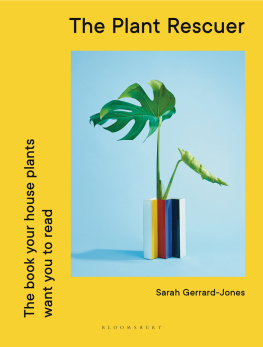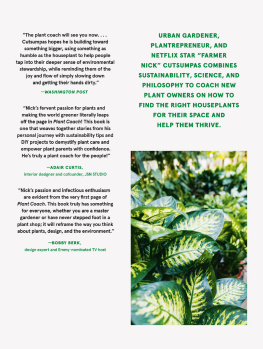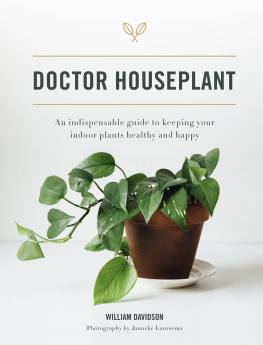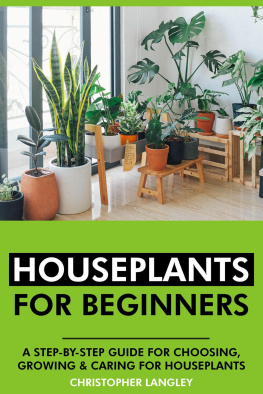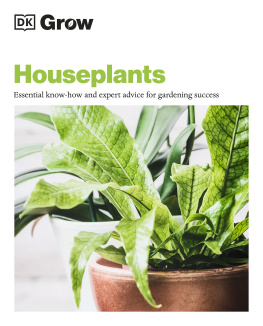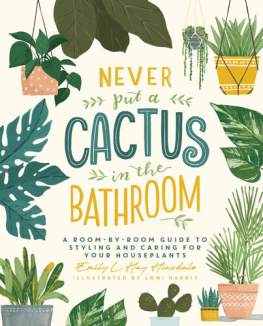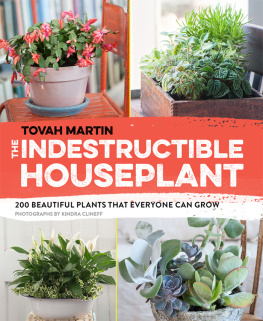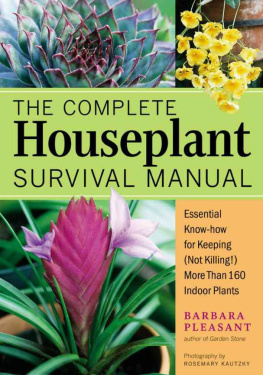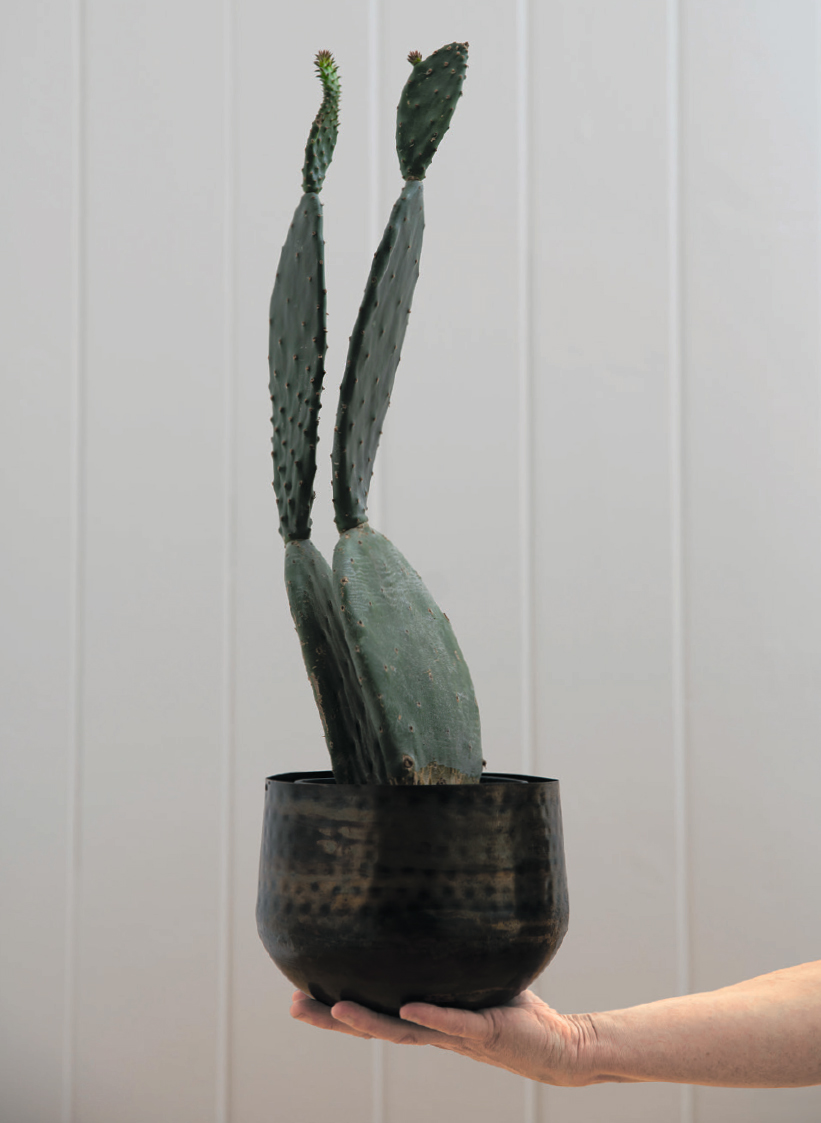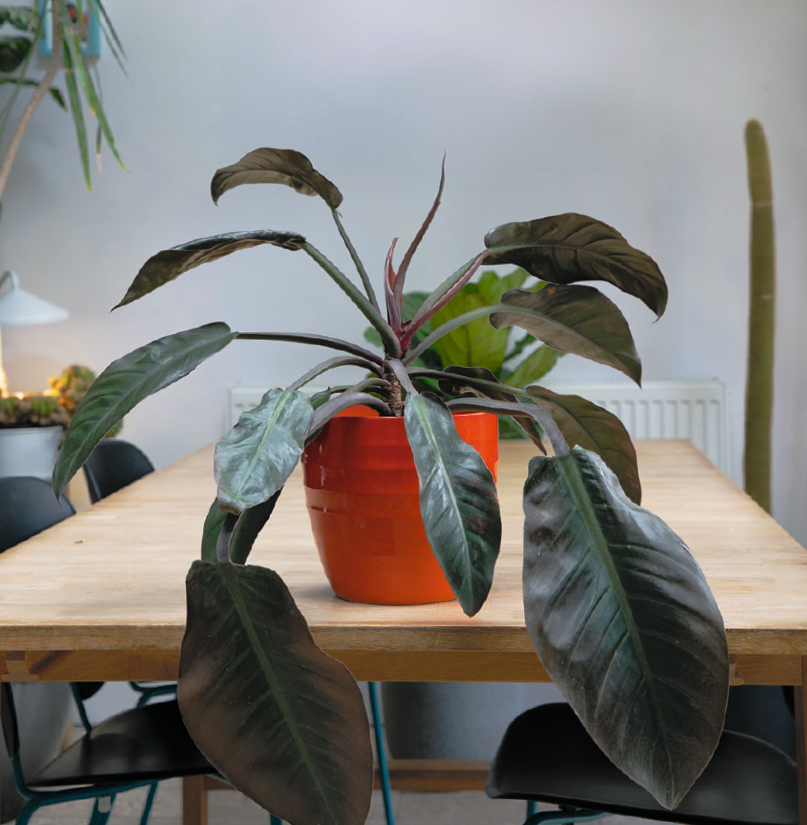







I dont believe in the notion that people are serial plant killers, nor do I believe people are born with green fingers. Growing plants that thrive is simply a case of taking the time to understand what your houseplant needs to survive and what its conveying through changes in its appearance.
My aim in writing this book is to give houseplants a voice. Yellow, brown, droopy or crispy leaves can be part of the normal life-cycle of a plant or a cry for help. But all too often we misread these signs or we dont take the time to understand them. Wouldnt it be great to be able to recognise subtle changes in a plants health and rectify any problems before the plant reaches the point of no return?
Ive been rescuing unheard and misunderstood plants for years and Ive poured all Ive learnt into this book so that you too can recognise the cries for help and save your plants from the compost heap. Everything I know about houseplants Ive learnt through the practical act of caring for them and nurturing them back to health. At times, the actions I take may be seen as unorthodox, but if you dont try, how can you succeed?
An unhappy plant can be a great teacher, but only if you take the time to notice. Throwing a plant away because it no longer looks perfect is an easy option, but in doing so you are just perpetuating the cycle of buying and killing plants; understand the symptoms and youll break the cycle.
The good news is that the solution to a plant problem is rarely complicated often the smallest adjustment can make the biggest change. There is myriad advice on how to care for plants, but take everything you read as a starting point for your own experimentation and dont let it become a source of stress. Its important to understand the basic science of how plants grow, but overanalysing every aspect of their care can suck the joy out of what should be a mindful, relaxing and enjoyable experience.
Remember that expert advice is so often a documentation of success, whereas failures are rarely acknowledged this can undermine confidence. Because occasionally, no matter how hard we try to examine and control the growing conditions, some plants will grow while others will die. Plants are living organisms and can defy the rules ultimately, we can only do so much.
So liberate yourself from regurgitated advice on the internet and learn from what your plants tell you. Dont jump on the bandwagon, stand on the pavement, wave it goodbye and get back to the job of caring for your plants in your own way. Worry less about doing the wrong thing failure is the key to future success, and each plant that dies is another lesson in what not to do next time.
I hope this book helps you to choose the right plants for you and your home and gives you the confidence to look after them; if a few are saved from the bin, then my work here is done.
My passion for rescues
The first plants I rescued from the bin at my local DIY store were orchids that had finished flowering no prizes for guessing why they were binned. Seeing them flower again following some basic care inspired me to look for other plants that could be saved before they were thrown away.
I started with easy ones, like a dumb cane (Dieffenbachia seguine) that had been damaged. Other than large tears in the leaves it was healthy, but because people prefer perfect-looking plants it was languishing on the shop shelf. You cant mend ripped leaves, so I left it to grow three new ones and then cut the damaged ones off. It had a bad start in life, but rectifying the problem couldnt have been easier, and to see it now triple the size brings me so much happiness (see ).
Id experienced such a sense of fulfilment from saving the orchids and seeing the dumb cane grow under my care, I couldnt wait to find my next patient. I stepped up my search, scouring the local plant shop shelves at least once or twice a week looking for neglected and damaged plants. My heart would skip a beat, not when I saw the most beautiful plant, but when I came across the one with the bent stem or crispy brown leaves it was that plant that I swiftly marched to the till.

Plants Ive rescued
My first attempt at saving a plant that had more than cosmetic damage was a young Swiss cheese plant (Monstera deliciosa). It had three leaves, but one of them was black. I was still very much a novice houseplant enthusiast, but I could immediately see what had caused the leaf to turn black: it had been planted directly into a decorative pot that didnt have a drainage hole, the soil was damp and the plant wasnt receiving any natural light. I knew if I took it out of that pot it had a chance of recovering, so it came home with me. After repotting and some minor surgery, it began to unfurl a healthy, bright new leaf and many more have emerged since.
There is much to learn from a change in a leafs colour or texture. Ignore the changes in your plant and you wont learn anything, and its likely you will make the same mistakes again and again resulting in many plant failures and a waste of your hard-earned money. Plant care doesnt require a degree in botany or horticulture, it takes nothing more than time, interest and a willingness to learn from what the plant is trying to convey through its appearance and from your mistakes.
I hate to think of people who have failed to keep a plant alive simply giving up and closing the door on the idea of getting another. Killing a plant can teach you exactly what not to do next time. Get straight back on that horse and gallop to the nearest plant shop because next time around things will be different. Whats to be gained from labelling yourself a plant killer and refusing to buy another? Building a connection with nature, be it through outdoor or indoor gardening, has so many benefits for our wellbeing that its worth going through the disappointment of losing a few plants in order to reap the rewards when you understand how to keep them alive.

